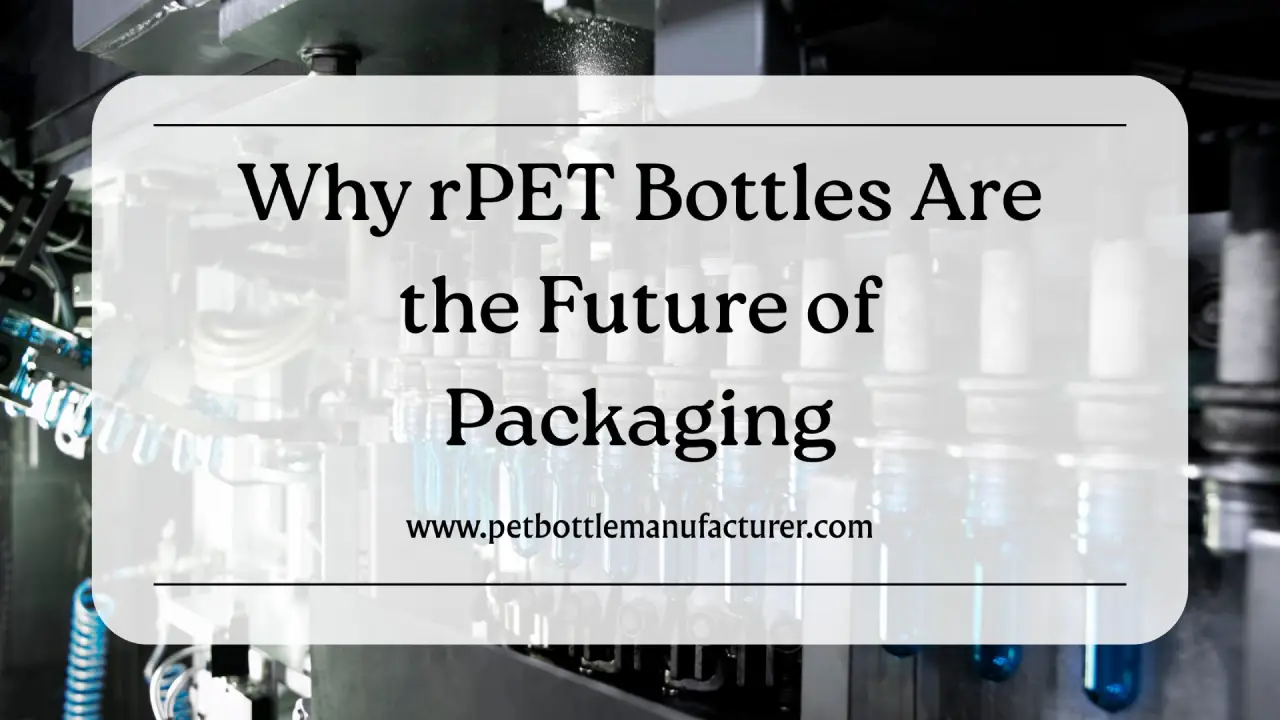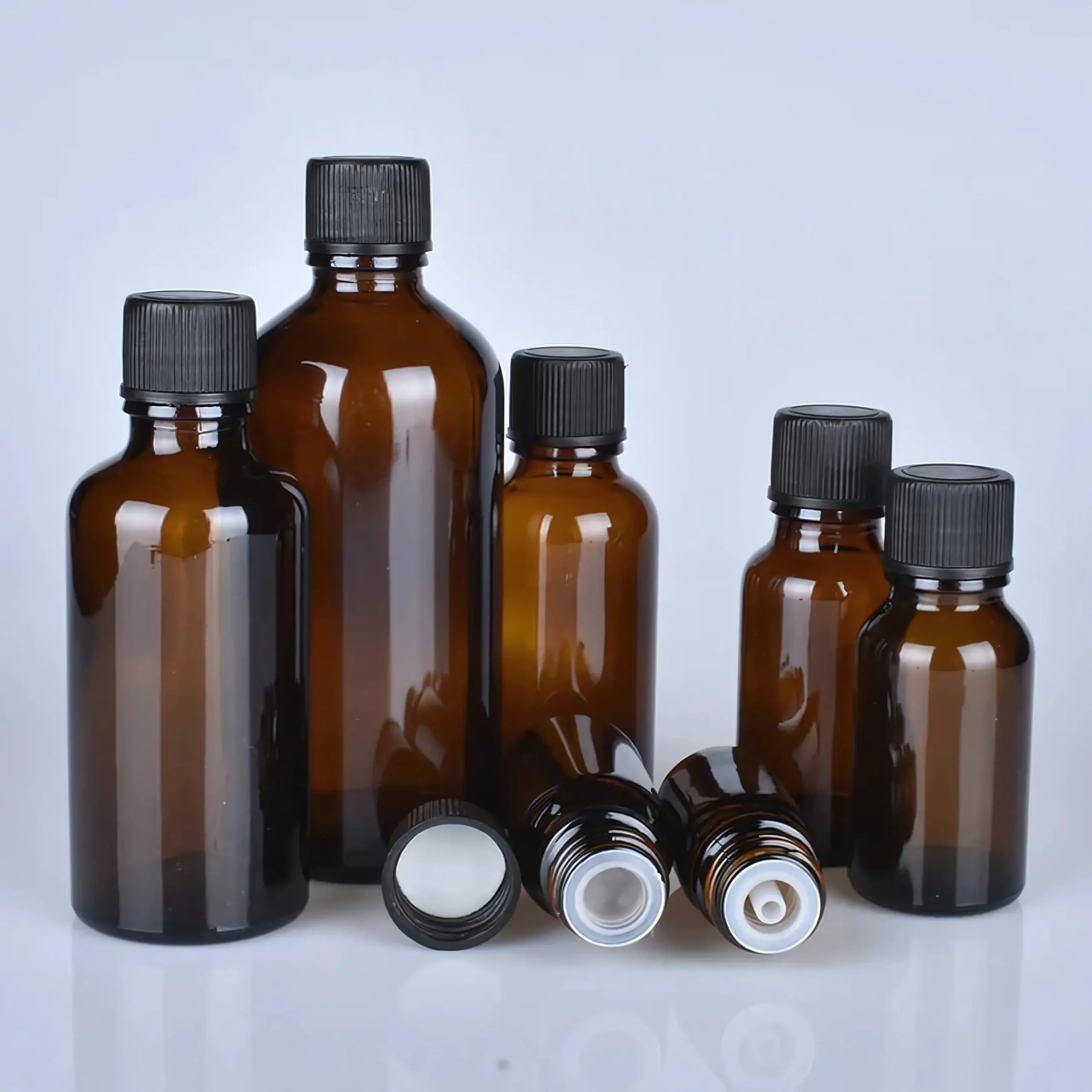Why rPET Bottles Are the Future of Packaging

Introduction: The Sustainable Packaging Revolution
The packaging industry is undergoing a fundamental transformation. Rising environmental concerns, increasing consumer awareness, and stringent government regulations are driving businesses to adopt eco-friendly solutions. Among these innovations, rPET bottles (recycled polyethylene terephthalate) are emerging as a game-changer, offering sustainability, cost-efficiency, and functionality.
rPET bottles are made using post-consumer recycled PET, significantly reducing plastic waste and carbon footprint. Their adoption spans multiple industries—from beverages and food products to personal care and pharmaceuticals.
As a leading PET Bottle Manufacturer, Shree Balaji Enterprises provides innovative rPET solutions that address the dual challenges of sustainability and packaging performance. This blog explores why rPET bottles are the future of packaging, detailing their benefits, applications, challenges, and the global market trends shaping their adoption.
1. Understanding rPET Bottles
1.1 What Are rPET Bottles?
rPET bottles are crafted from recycled PET materials. PET, or polyethylene terephthalate, is a lightweight, durable, and recyclable plastic widely used in beverages, food containers, and personal care products. The term “rPET” refers to PET that has been reprocessed from post-consumer or post-industrial waste into new bottles or packaging.
1.2 Manufacturing Process
The rPET bottle manufacturing process involves several key stages:
- Collection: Post-consumer PET bottles are collected from households, industries, and recycling centers.
- Sorting: Bottles are sorted by color and type to ensure consistency in the final product.
- Cleaning: Contaminants such as labels, adhesives, and residues are removed.
- Flaking: Clean bottles are ground into small PET flakes.
- Pelletization: Flakes are melted and reformed into pellets, which serve as raw material for new bottles.
- Bottle Production: Pellets are processed through extrusion and blow-molding to create new rPET bottles, ready for commercial use.
This closed-loop process ensures that waste PET is converted into high-quality, durable packaging, reducing environmental impact while conserving resources.
2. Environmental Impact of rPET
2.1 Reducing Plastic Waste
rPET bottles help divert millions of tons of plastic from landfills and oceans. By reusing PET, the industry minimizes the environmental burden associated with single-use plastics.
2.2 Lower Carbon Footprint
Producing rPET bottles consumes less energy than manufacturing virgin PET, resulting in a reduced carbon footprint. Studies indicate that rPET production can lower greenhouse gas emissions by up to 50% compared to virgin PET.
2.3 Resource Conservation
Recycling PET reduces the need for virgin petroleum-based raw materials, conserving natural resources while promoting a circular economy.
3. Economic Benefits of rPET
3.1 Cost-Effectiveness
While initial investments in rPET technology may be high, long-term savings are substantial. Recycled PET reduces dependency on fluctuating raw material prices and energy-intensive virgin PET production.
3.2 Lightweight and Transport Efficiency
rPET bottles are lighter than glass or some alternative plastics, reducing shipping costs and energy consumption during logistics.
3.3 Consumer Appeal
Brands adopting rPET can market themselves as eco-friendly, attracting environmentally conscious consumers and gaining competitive advantage.
4. Industry-Specific Applications
4.1 Beverage Industry
rPET bottles are widely used in water, soft drinks, juices, and energy drinks. Their lightweight nature ensures cost-effective distribution, and their durability maintains product integrity.
4.2 Food Packaging
rPET is ideal for edible oils, sauces, condiments, and dairy products, offering airtight sealing and preventing contamination. Multi-layer rPET bottles enhance barrier properties, extending shelf life.
4.3 Personal Care and Cosmetics
Shampoos, lotions, and liquid soaps benefit from rPET bottles due to their clarity, smooth finish, and chemical resistance, ensuring product safety and consumer trust.
4.4 Industrial and Pharmaceutical Packaging
rPET bottles are also suitable for chemicals, liquid medicines, and other industrial liquids, offering leak-proof and durable packaging.
5. Market Trends Driving rPET Adoption
5.1 Growing Environmental Awareness
Consumers increasingly prefer products packaged in sustainable and recyclable materials, pushing brands to adopt rPET.
5.2 Government Policies and Regulations
India and several global markets have introduced regulations to reduce single-use plastics. Incentives are provided for manufacturers adopting recycled materials, further accelerating rPET adoption.
5.3 Corporate Sustainability Initiatives
Brands incorporate rPET into their ESG (Environmental, Social, Governance) strategies, signaling commitment to sustainability while meeting corporate responsibility goals.
5.4 Technological Advancements
Advanced recycling processes produce high-quality rPET with clarity and durability comparable to virgin PET, encouraging wider adoption.
6. Technological Innovations in rPET Bottles
6.1 Lightweight Designs
- Reduce material usage without compromising strength
- Lower transportation costs and carbon footprint
6.2 Multi-Layer rPET Bottles
- Combine rPET with barrier layers to prevent oxygen and moisture ingress
- Extend shelf life of beverages and sensitive products
6.3 Custom Shapes and Branding
- Flexible molding allows ergonomic and brand-specific designs
- Supports marketing and consumer engagement
6.4 Digital Printing
- Direct printing on rPET bottles eliminates labels
- Reduces material usage and enhances recyclability
7. Challenges and Solutions
7.1 Quality and Clarity
- Contaminants can affect bottle transparency
- Advanced sorting and cleaning techniques improve final product quality
7.2 Supply Chain Limitations
- Reliable post-consumer PET collection is crucial
- Partnerships with recyclers and collection agencies ensure a consistent raw material supply
7.3 Consumer Perception
- Awareness campaigns highlight the safety and sustainability of rPET
- Branding emphasizes eco-friendly credentials to win consumer trust
7.4 Cost Considerations
- High-quality rPET may sometimes be costlier than virgin PET
- Bulk sourcing and process optimization mitigate cost differences
8. Case Studies: rPET Adoption in India
8.1 Beverage Brands
- Leading Indian water and soft drink brands have shifted to 100% rPET bottles, significantly reducing plastic waste.
8.2 Food Packaging Companies
- Cooking oil and condiment manufacturers use rPET to enhance sustainability credentials while maintaining product safety.
8.3 Personal Care Industry
- Shampoo and lotion brands adopt rPET for eco-conscious packaging, appealing to millennial and Gen-Z consumers.
Impact: Brands report up to 50% reduction in plastic footprint and positive consumer response.
9. The Future of rPET Packaging
9.1 Growth Potential
- The Indian rPET market is expected to grow 15–20% CAGR over the next five years
- Global adoption is increasing due to regulatory pressure and consumer demand
9.2 Technological Advancements
- Improved recycling processes enable clearer, stronger, and more durable rPET bottles
- Multi-layer and lightweight designs enhance functionality and sustainability
9.3 Circular Economy Integration
- rPET supports a closed-loop recycling system, reducing environmental impact and promoting responsible consumption
10. Why rPET Bottles Are the Future
- Sustainability: Reduces plastic waste and conserves resources
- Economic Efficiency: Lowers production and logistics costs
- Consumer Preference: Eco-conscious packaging drives brand loyalty
- Regulatory Compliance: Supports environmental mandates
- Technological Innovation: Advanced processing ensures high-quality packaging
- Corporate ESG: Meets sustainability reporting goals and strengthens brand image
11. How Shree Balaji Enterprises Supports rPET Adoption
As a trusted PET Bottle Manufacturer, Shree Balaji Enterprises offers:
- High-quality rPET bottles for food, beverage, and personal care sectors
- Customizable sizes, shapes, and designs
- Support for regulatory compliance and ESG reporting
- Reliable supply chain for consistent availability
Brands partnering with Shree Balaji Enterprises gain high-performance, sustainable packaging solutions that align with modern consumer expectations.
Conclusion
rPET bottles represent the future of packaging, combining environmental sustainability, cost efficiency, durability, and consumer appeal.
Adopting rPET allows brands to:
- Reduce environmental impact
- Comply with government regulations
- Appeal to eco-conscious consumers
- Strengthen brand reputation
As a leading PET Bottle Manufacturer, Shree Balaji Enterprises provides innovative, high-quality rPET solutions for Indian and global markets. Embracing rPET is not just an eco-friendly choice—it is a strategic move for future-ready packaging.


Comment (1)
Your place is valueble for me. Thanks!…